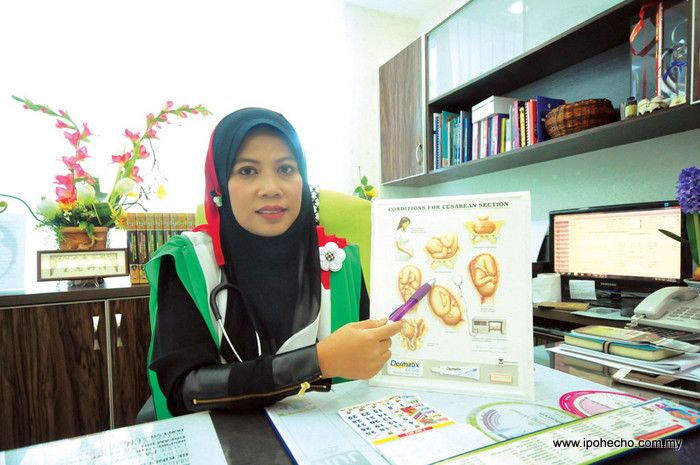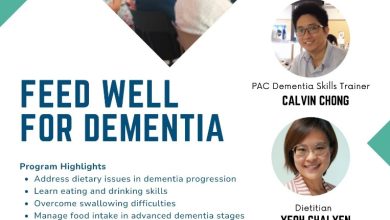

Wellness


Dr Noorashikin began her practice at KPJ Ipoh Specialist Hospital in March 2015. She graduated from Universiti Kebangsaan Malaysia (UKM) in 1995 and did her housemanship at Hospital Taiping. Upon completion of her internship, she worked in Hospital Teluk Intan before pursuing a Master’s programme in UKM in 1998. She remained at HUKM till completion of her programme in December 2002. She then worked in many government hospitals as O&G specialist before joining the Fellowship (subspeciality) training in Reproductive Medicine and Infertility in 2007 and was successfully gazetted as Reproductive Medicine Specialist in 2013.
Infertility, according to Dr Noorashikin, is the failure to conceive or to carry a pregnancy after 12 months or more of trying. However, if the woman is 35 years old or more, the time of trying is reduced to 6 months. Generally, about 10% of couples have infertility problems. Even though infertility is commonly blamed on women, the reality is both partners contribute to the problem. One third of infertility problems arises from men while another 30% are from women. The remaining is either having unexplained infertility, where no obvious reason can be found in either or both have problems that cause them to be subfertile.
A study from the 2002 National Survey of Family Growth from Centre for Disease Control USA found that 7.5% of all sexually experienced men younger than age 45 reported seeing a fertility doctor during their lifetime – this equals 3.3-4.7 million men. Of men who sought help, 18% were diagnosed with a male-related infertility problem, including sperm or semen problems (14%) and varicocele (6%).


Infertility and Lifestyle
Infertility in men can be caused by various factors such as varicoceles, certain medical condition, for example, diabetes, cystic fibrosis, trauma, infection, testicular failure, or due to treatment with chemotherapy or radiotherapy. Unhealthy habits such as heavy alcohol use, testosterone supplementation, smoking, anabolic steroid use, and illicit drug use can also cause them to be subfertile.
As for women, infertility can be caused by ovulation disorder problems diminished ovarian reserve or Premature Ovarian Failure, tubal problems and abnormal uterine pathology (e.g. uterine fibroid). However, age of the female partner and their lifestyle is the most important factor to be considered where fertility is concerned.
To date, we know that as men and women age, both sperm and the eggs are less able to fertilize, form an embryo and subsequently develop into a normal healthy baby. Fertility does require the sperm and eggs to be very healthy. A poor diet and poor lifestyle habits can worsen this process, and we know now that it even can cause poor egg and sperm quality in younger individuals.
There are some exciting new findings now indicating that if we change our poor diet and lifestyles, it may rejuvenate older sperm and eggs and improve their fertility. This includes taking foods that are rich with antioxidants such as vegetables, fruits (berries), green tea, chocolate and a commercial antioxidant (vitamin A,C and E). Another new finding is on taking Co-enzyme Q-10 to rejuvenate the aging eggs in older women. It also has been reported to increase sperm motility.
Exercise is very important. Excess body weight has been found to have a major negative effect on ovulation but relatively minor effects on sperm quality. It also decreases the chance of pregnancy and increases the chance of miscarriage even if a woman is ovulating. Smoking also has major adverse effects on both sperm and egg quality. It will reduce natural fertility and reduce the chance of a successful pregnancy with IVF by 50%. In males, smoking increases sperm DNA fragmentation, which increases miscarriage and expose young children to asthma, bronchitis, pneumonia, ear infections and sudden infant death syndrome. It is best to avoid or reduce alcohol and caffeine intake if you are trying to conceive. Stress management is also important. Various studies have shown that women who have anxiety, stress and depression are less likely to succeed in their IVF treatment.
The message is, you can help yourself be successful. In general, infertility can be treated with medicine, surgery, intrauterine insemination (IUI) or invitro fertilization (IVF) or in combination based on the causes of infertility, the duration, the age of the female partner and the couple’s treatment preference.
Having infertility is not a tragedy. Help is available. Also keep in mind that the lifestyle changes you achieve will improve your general health for many years to come.
For more information, call Dr Noorashikin Maan of KPJ Ipoh Specialist Hospital at 05 240 8777 (ext 8524).
Nantini


